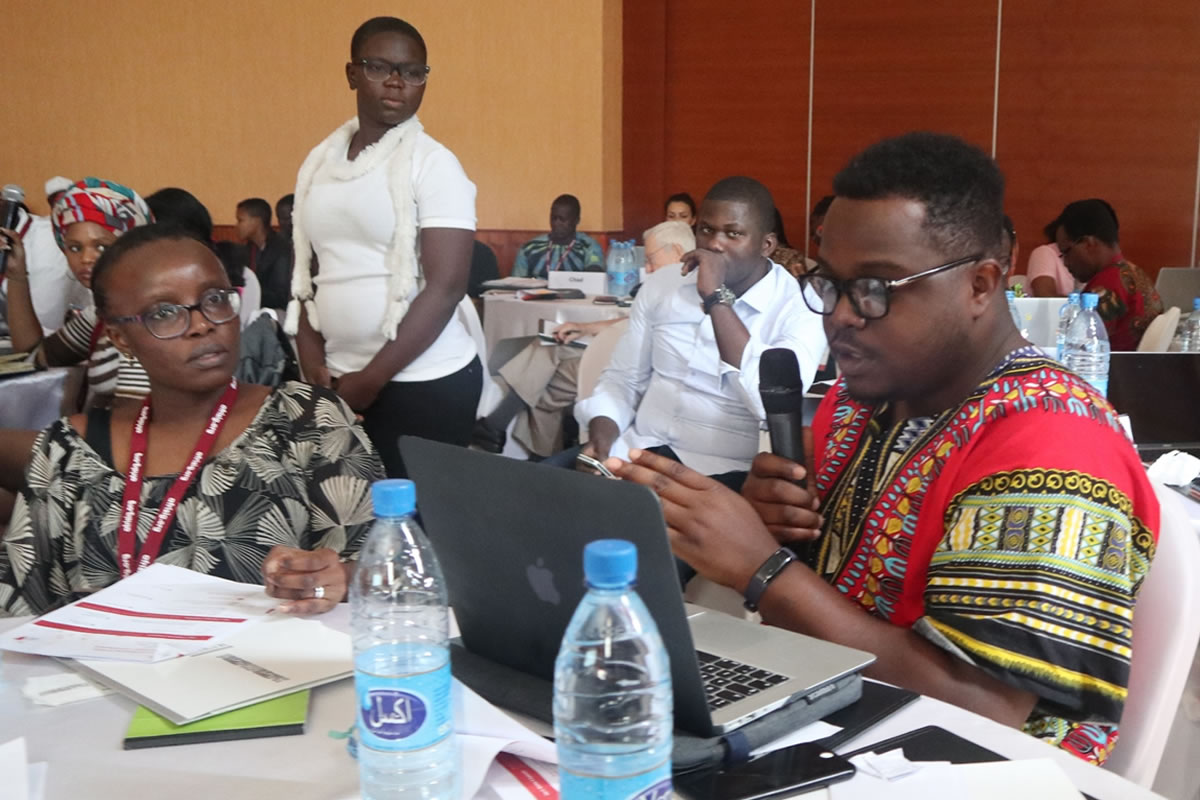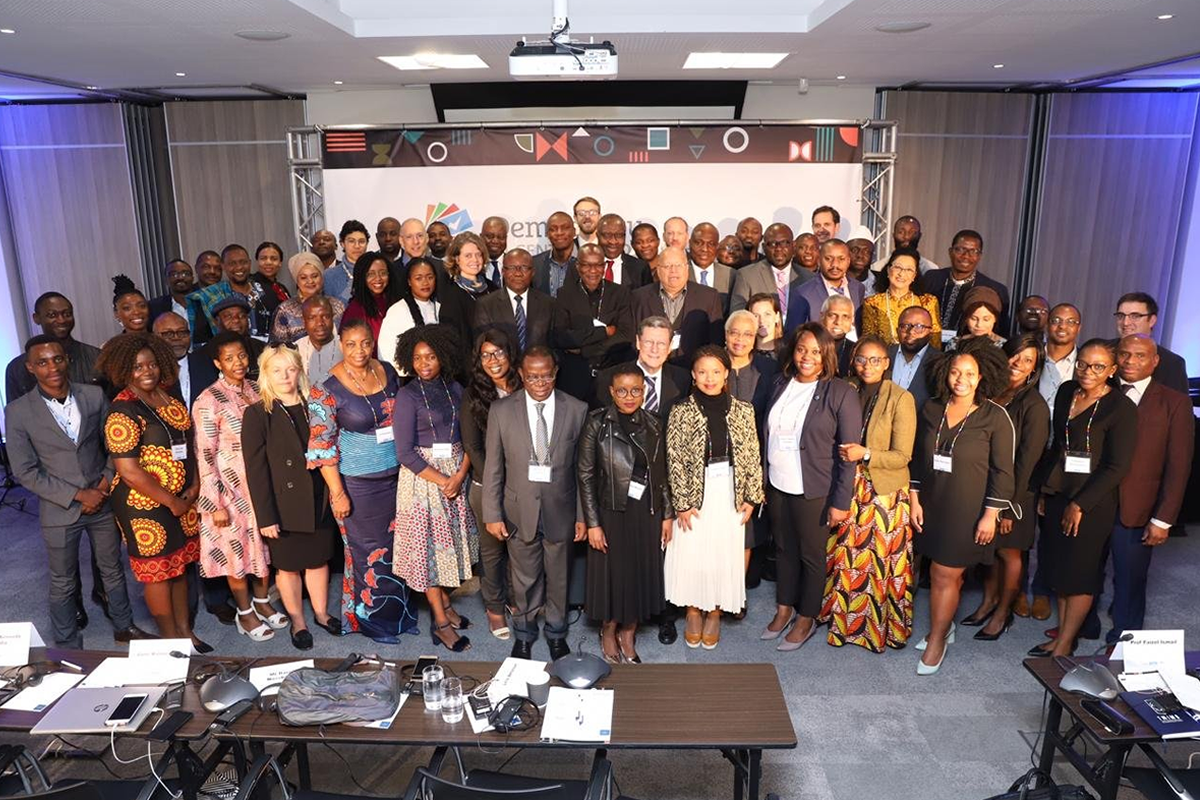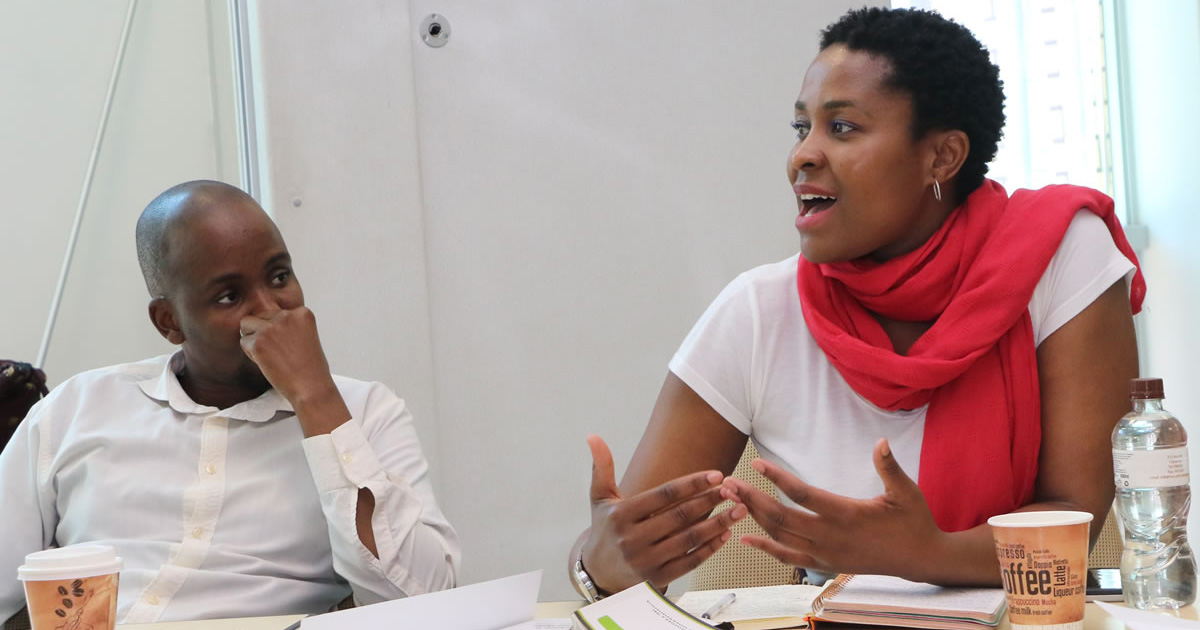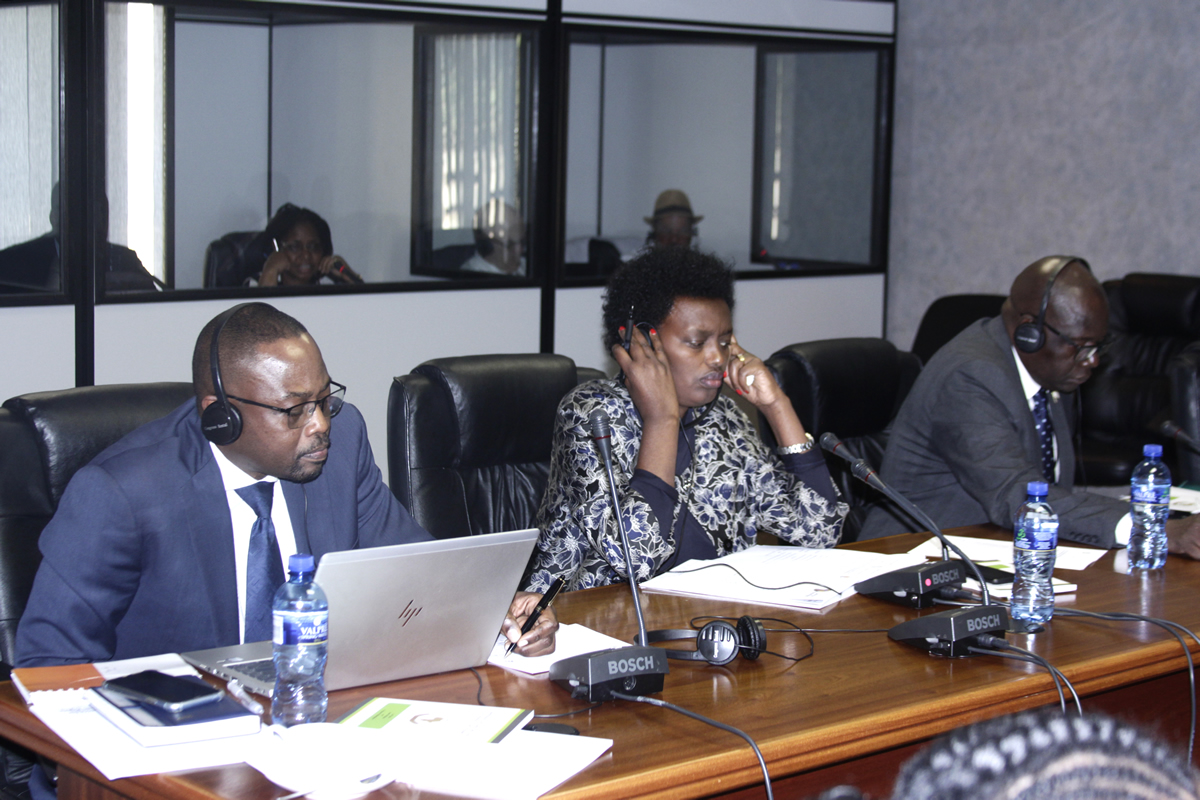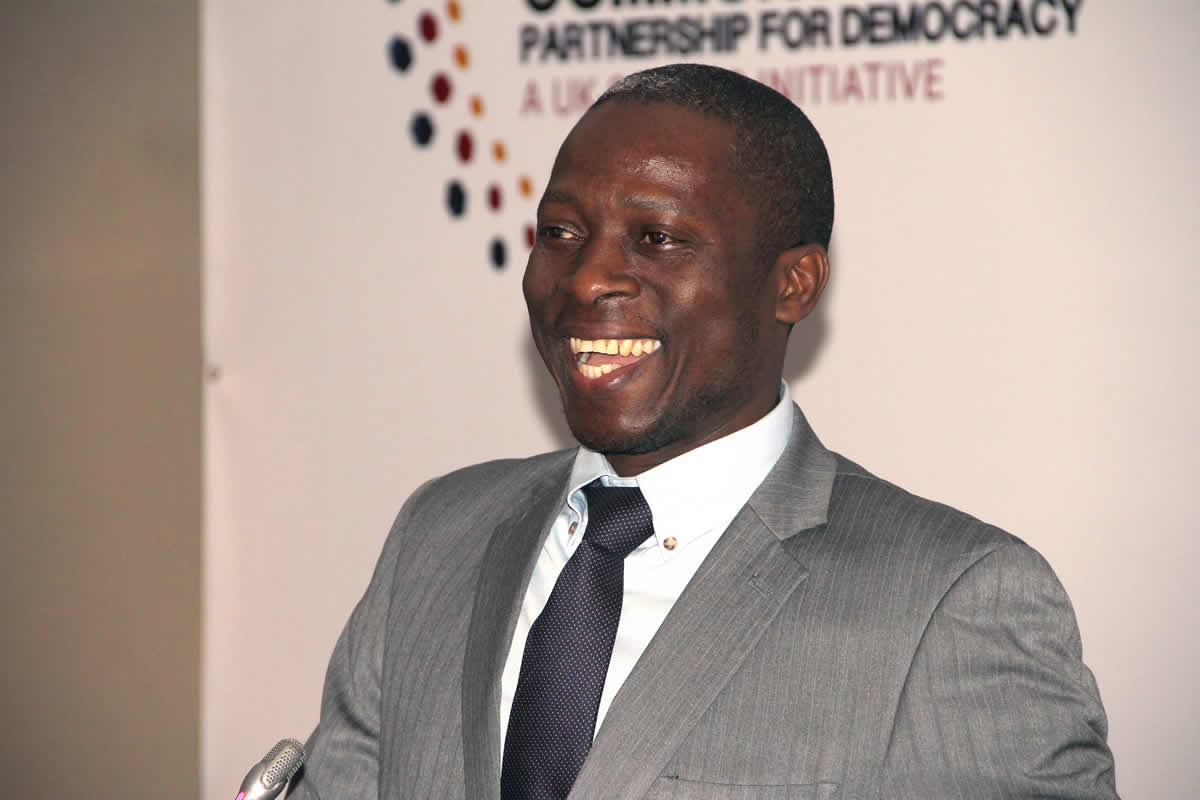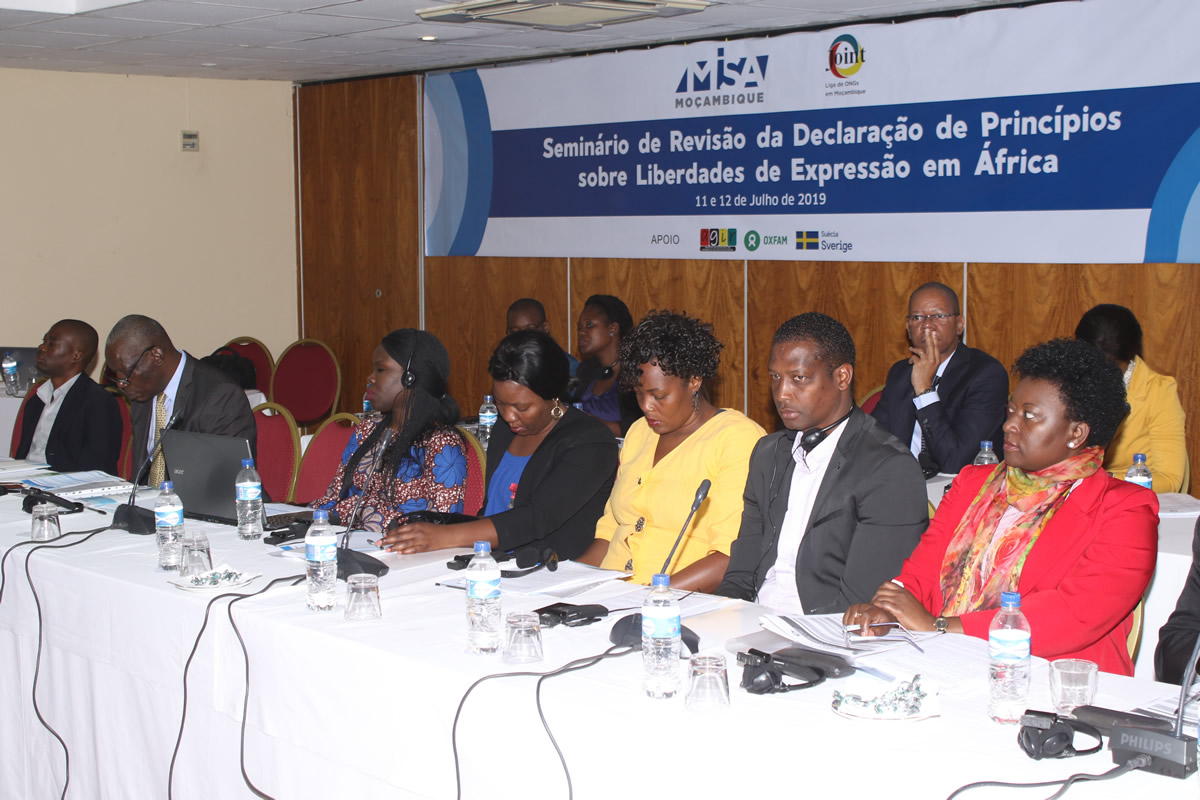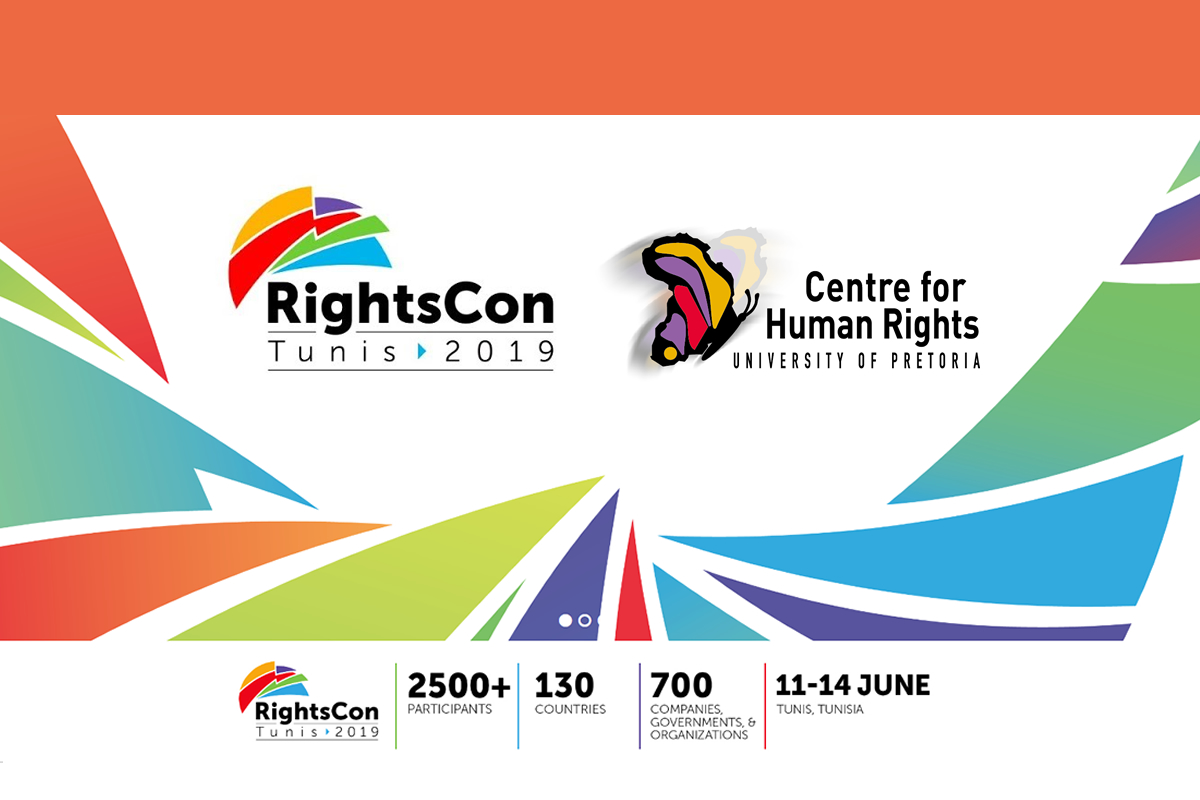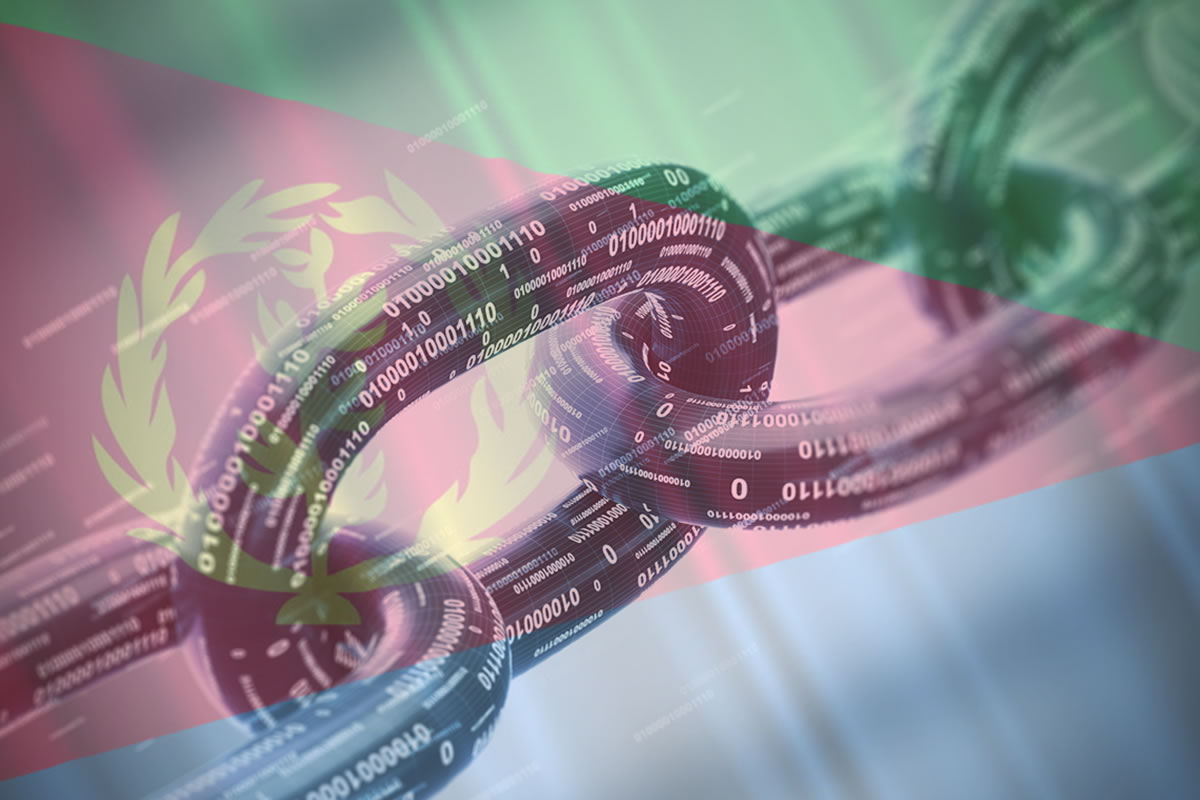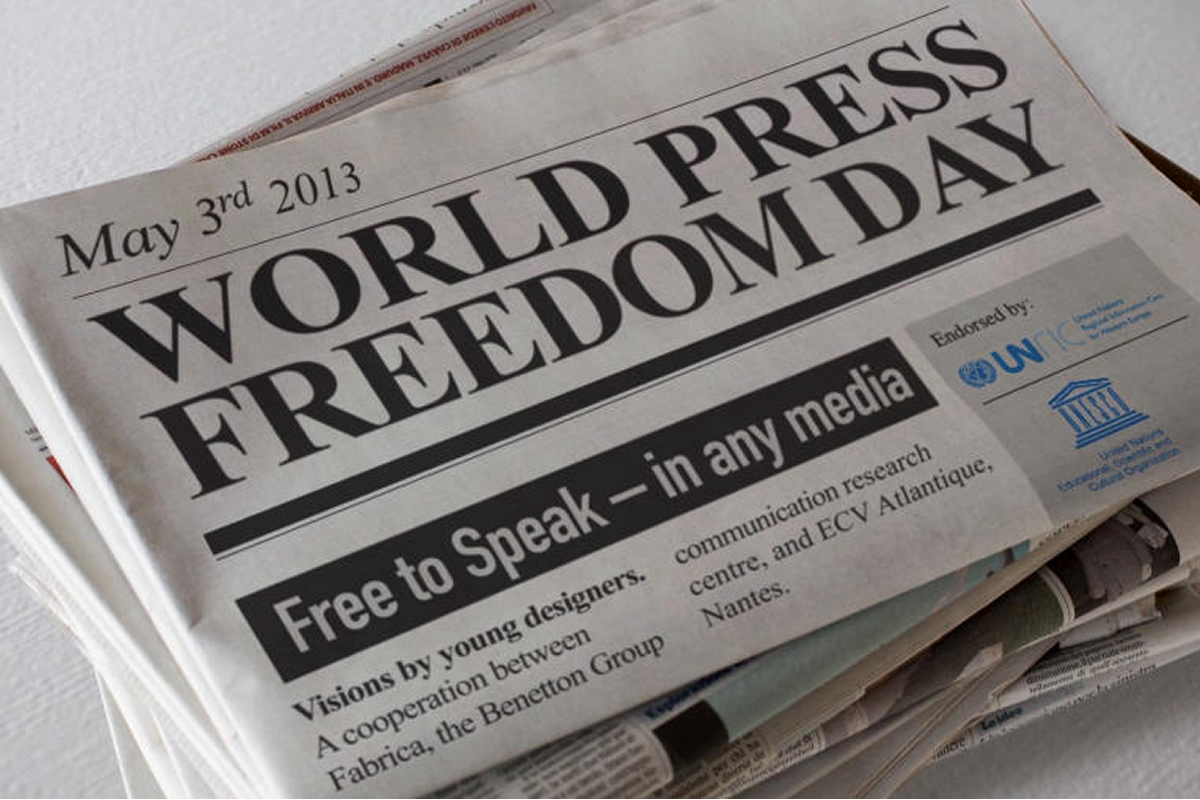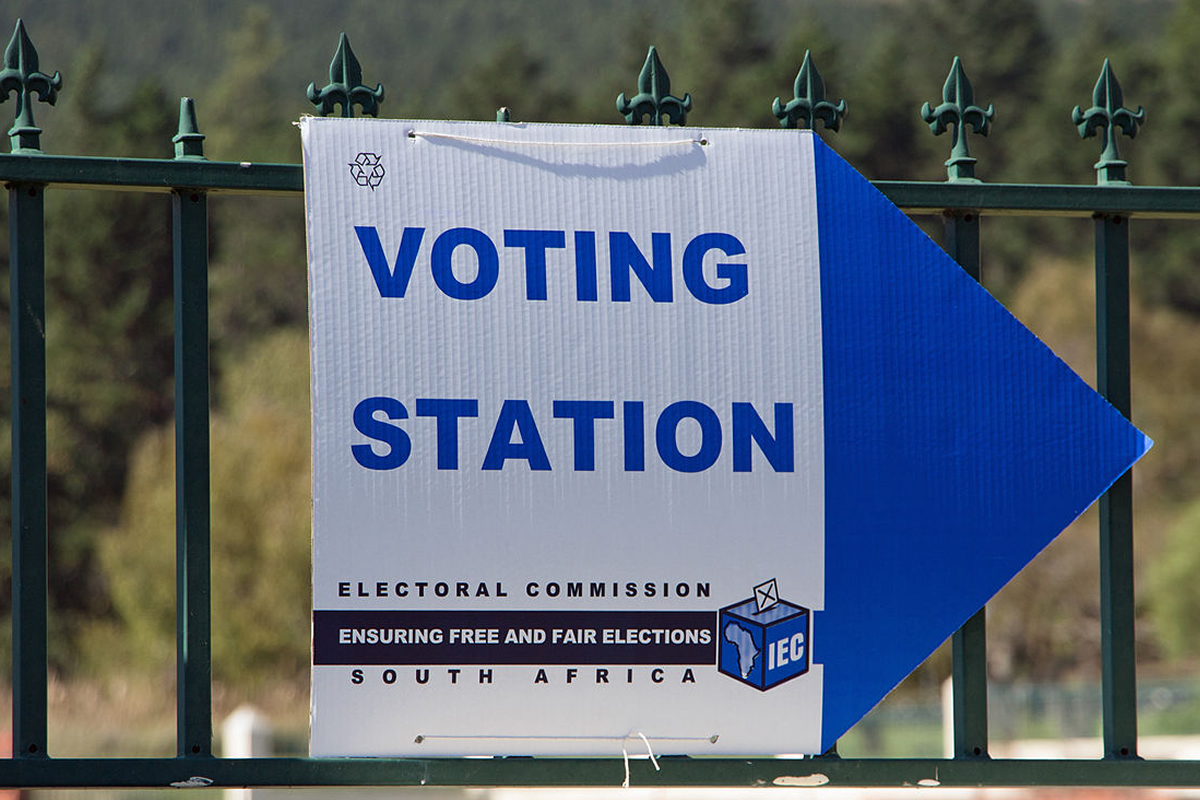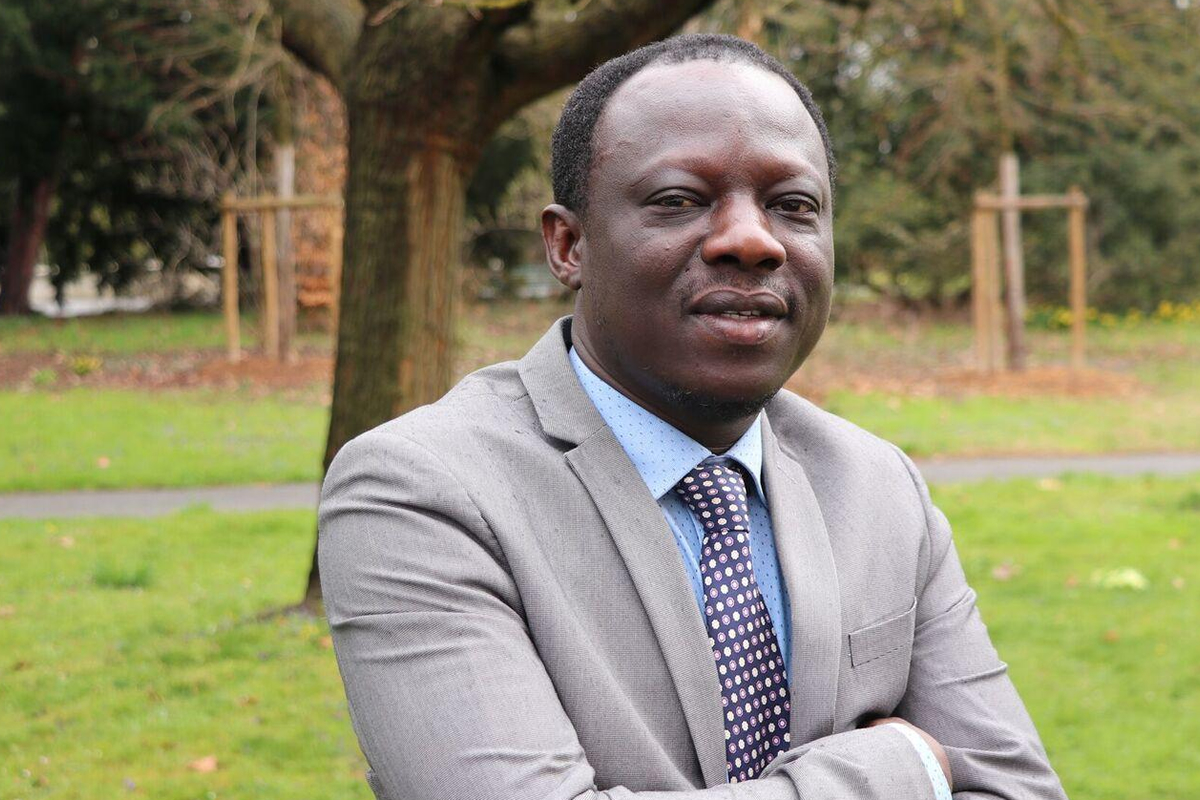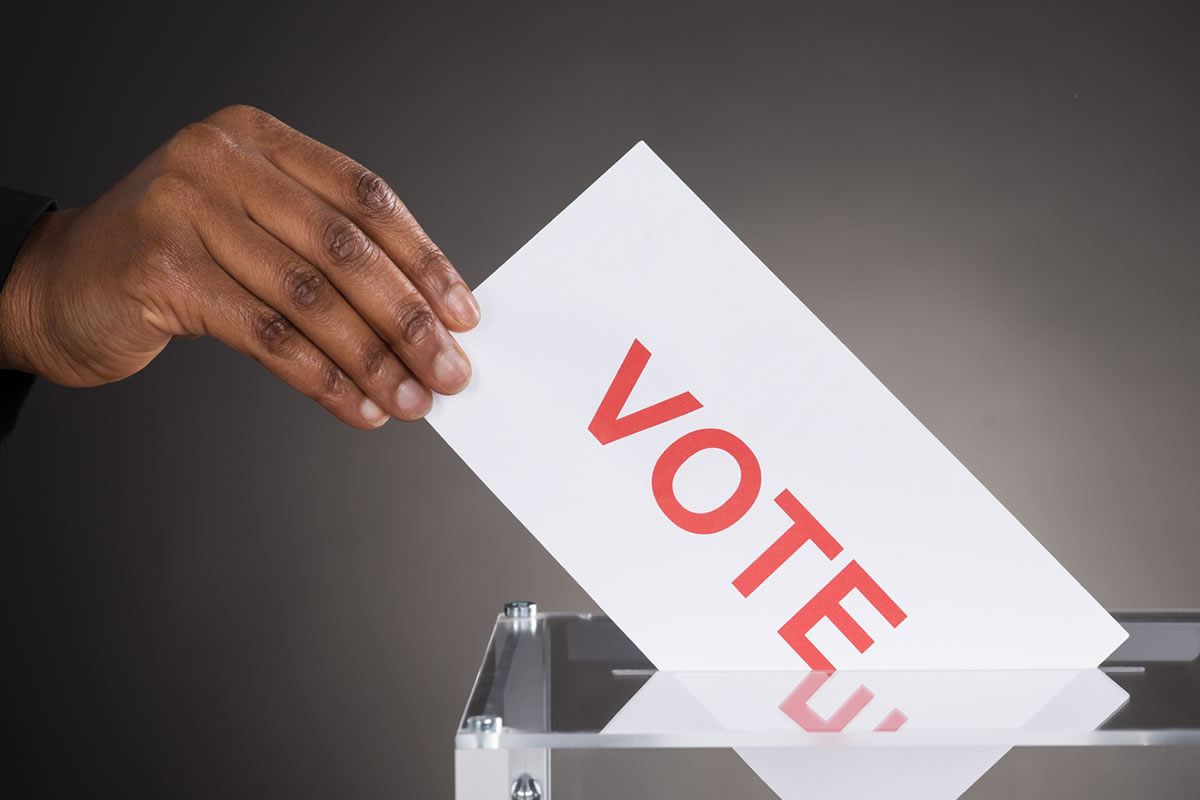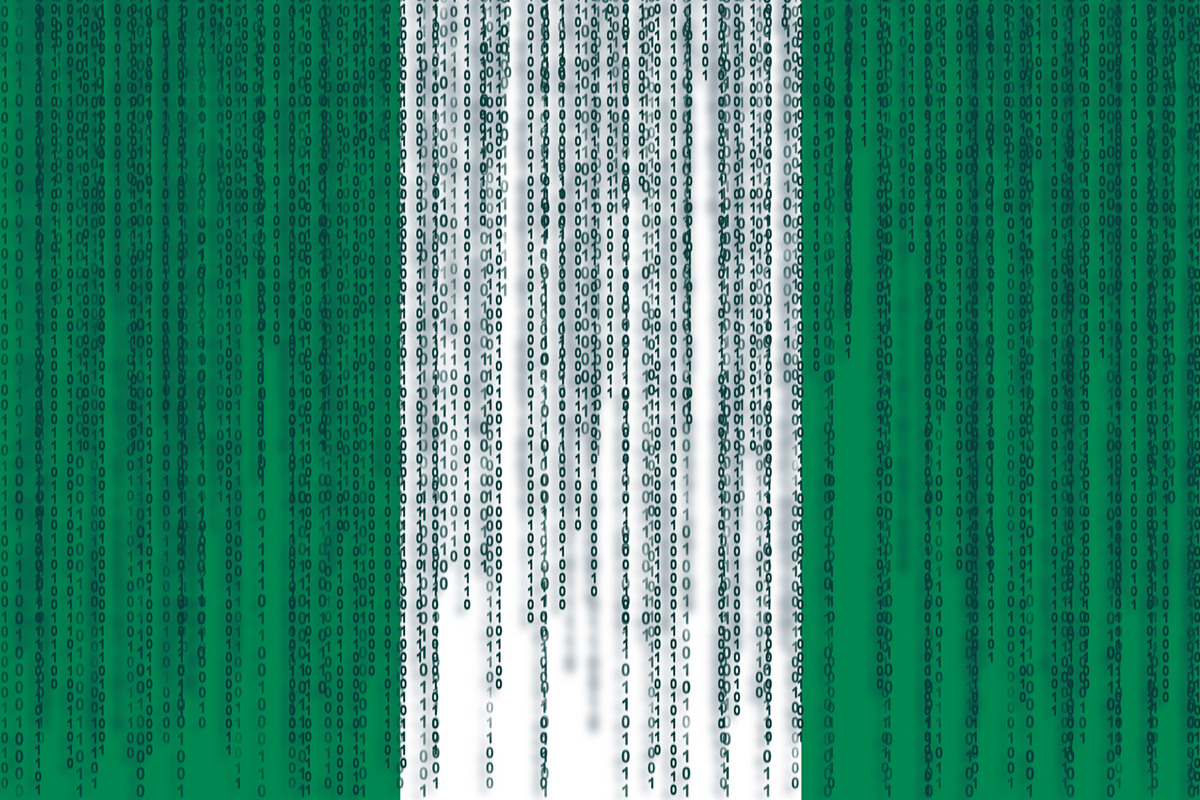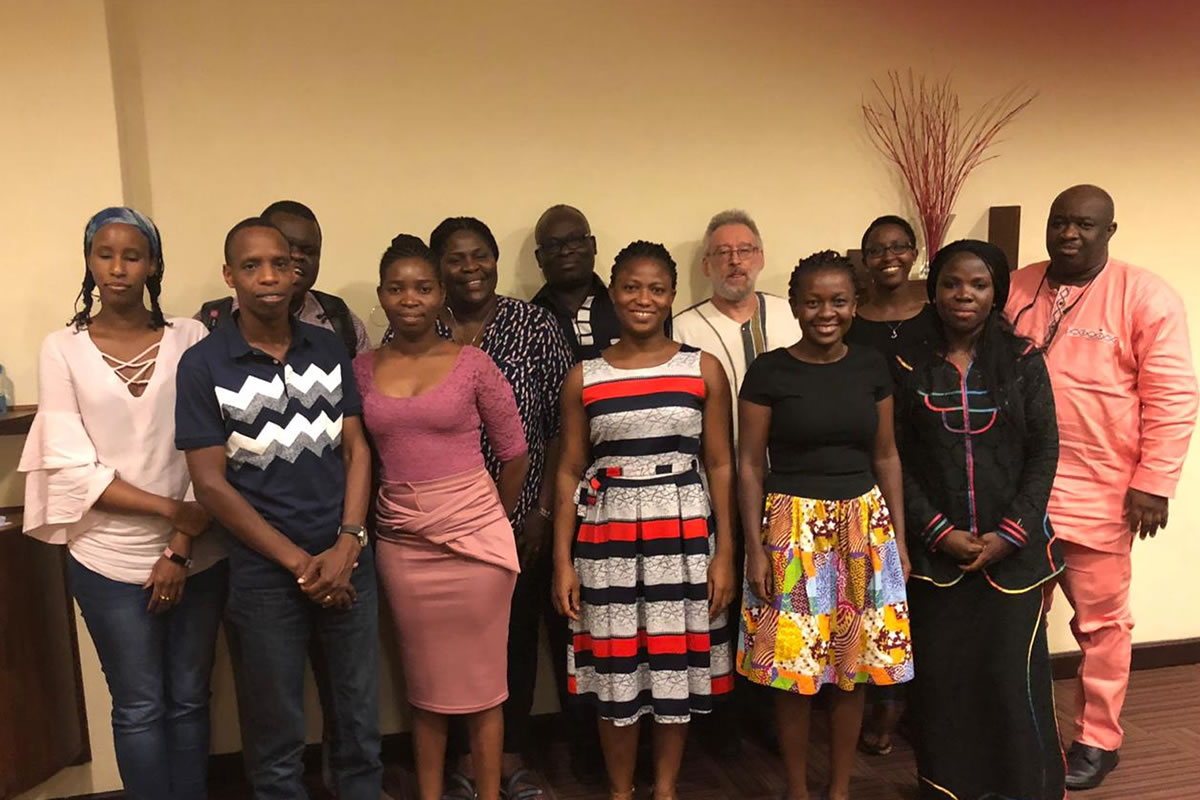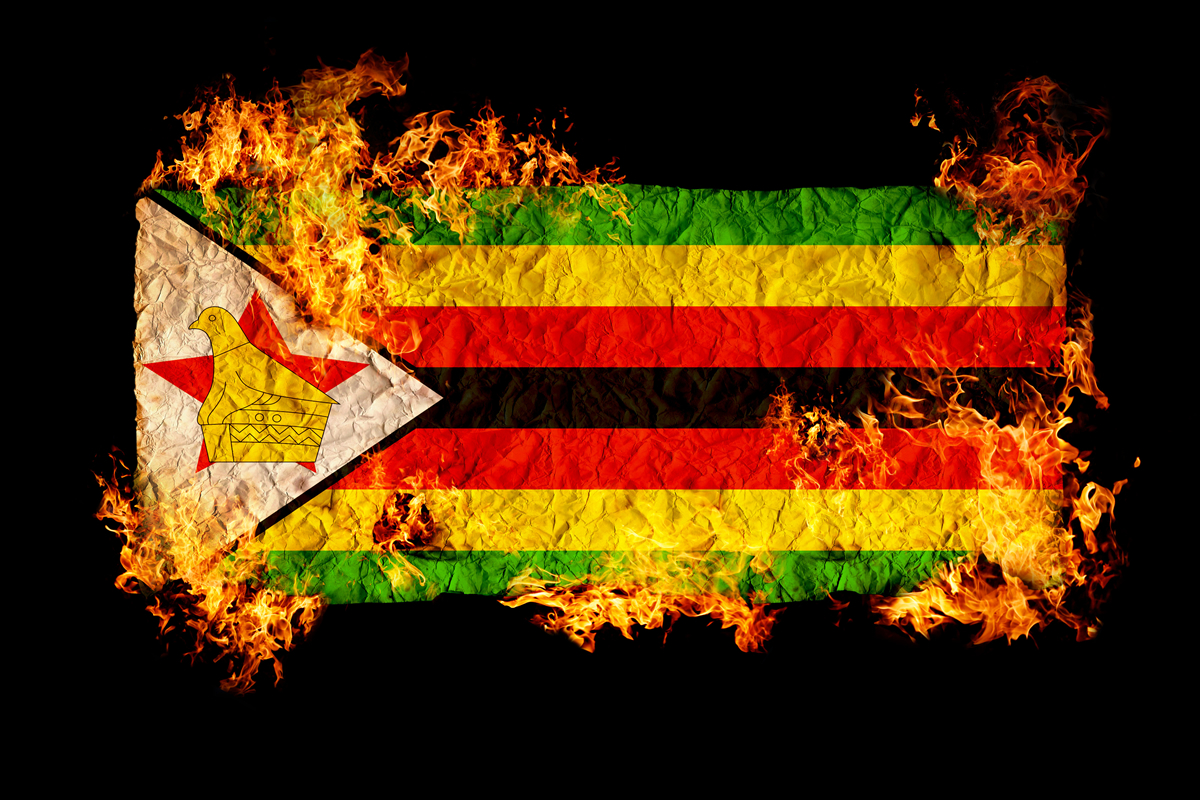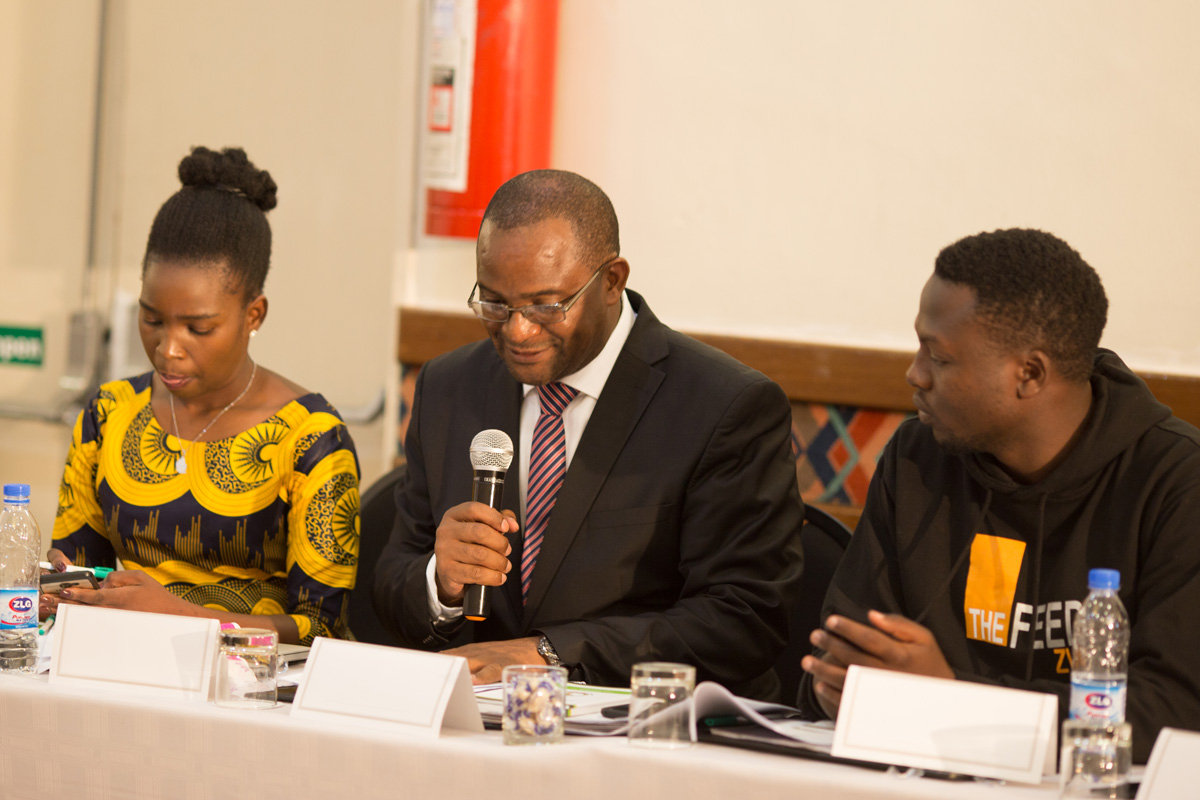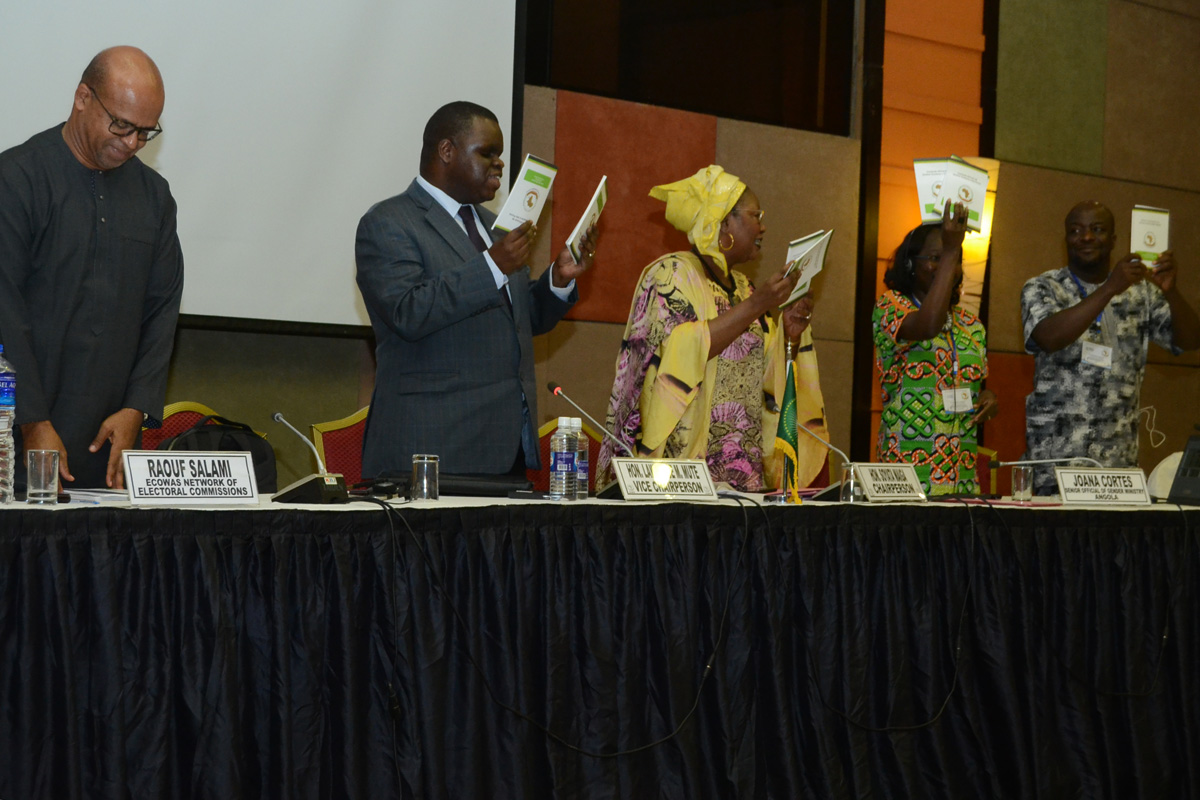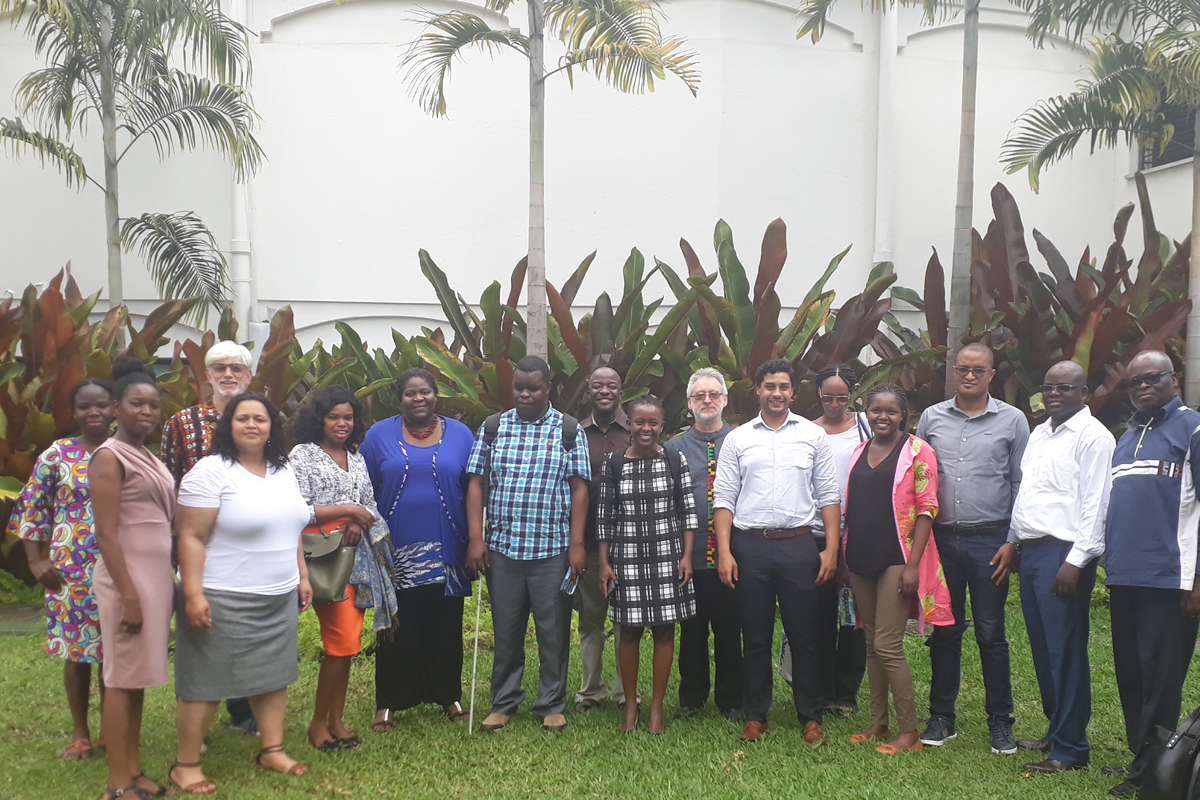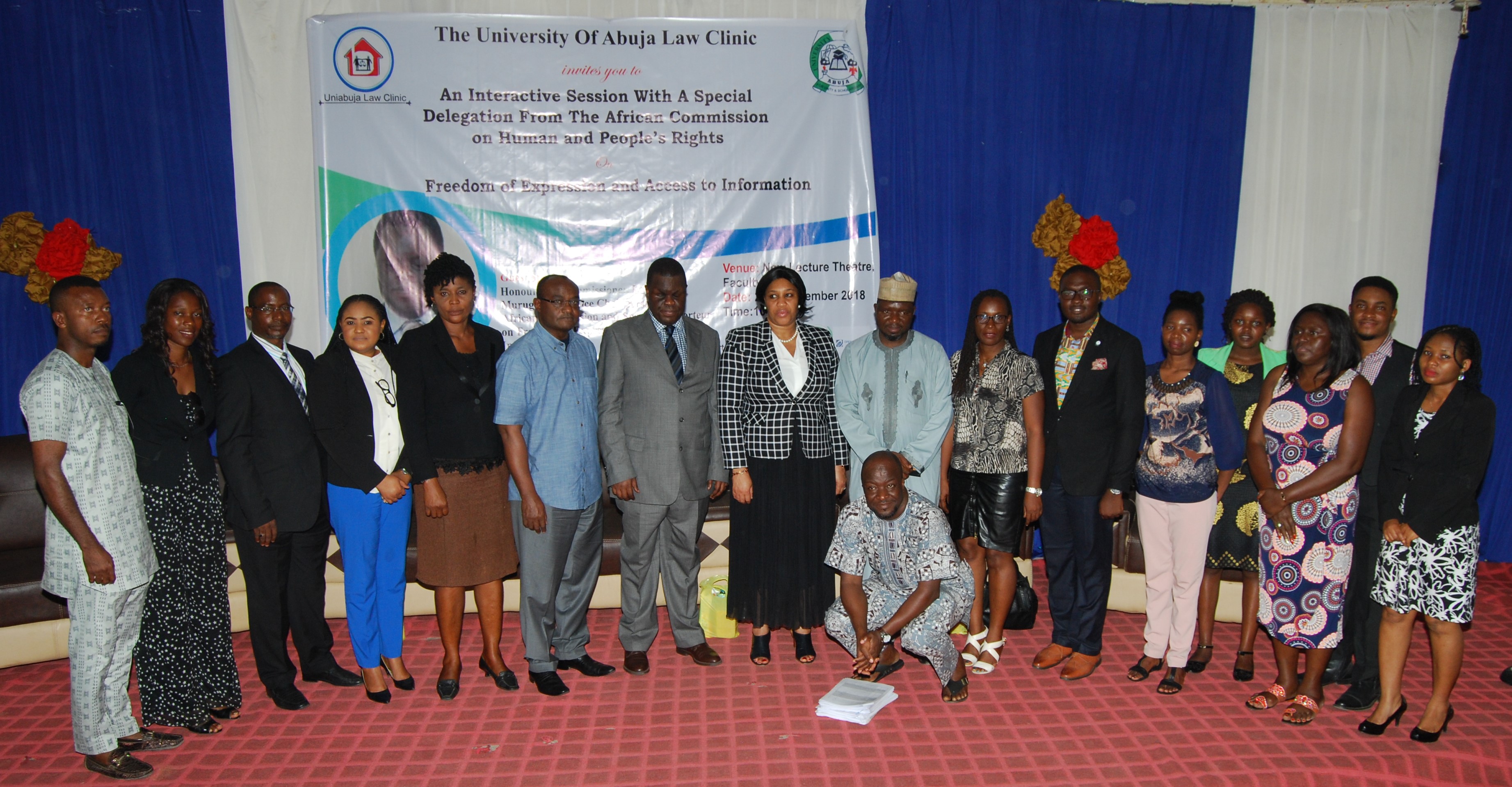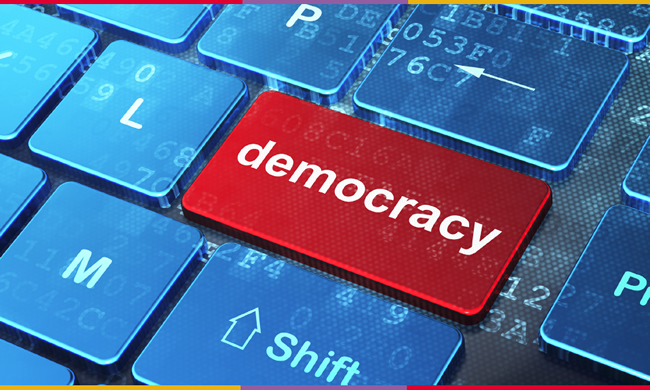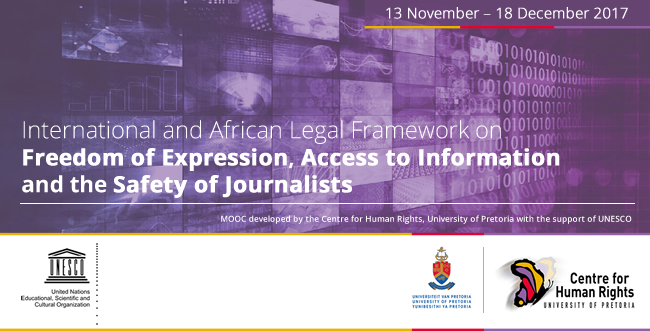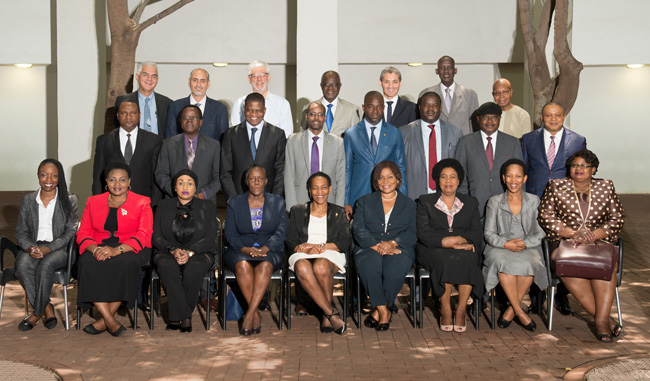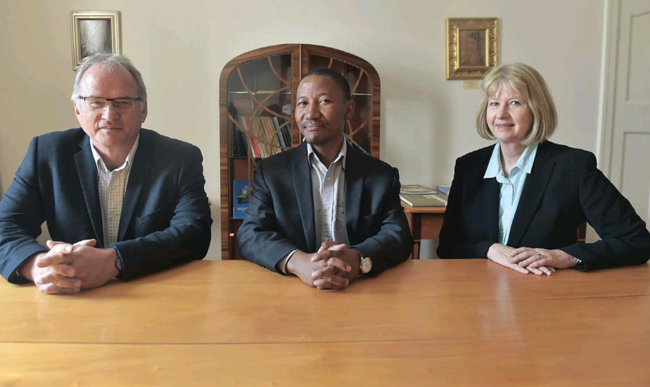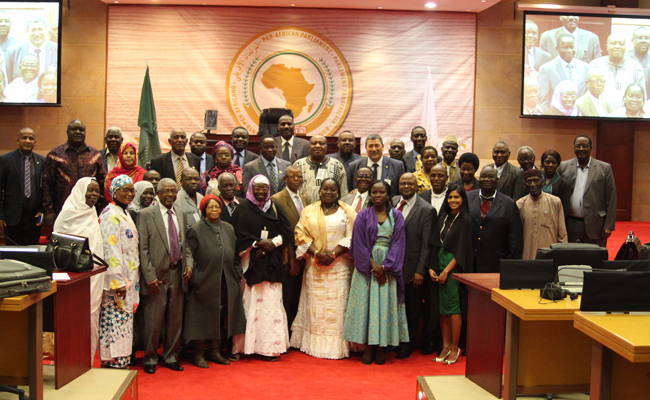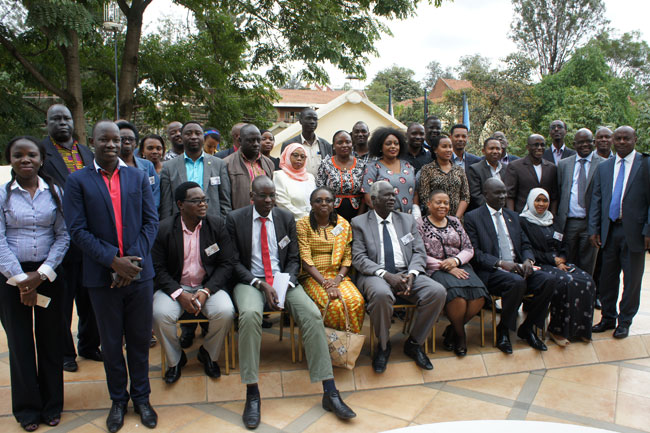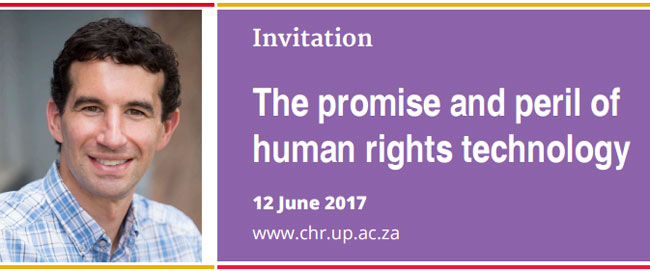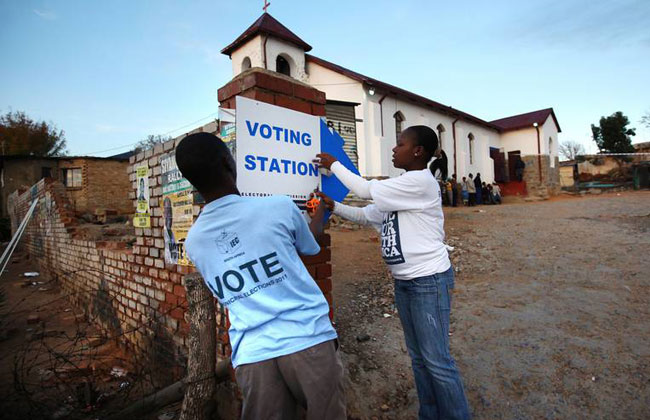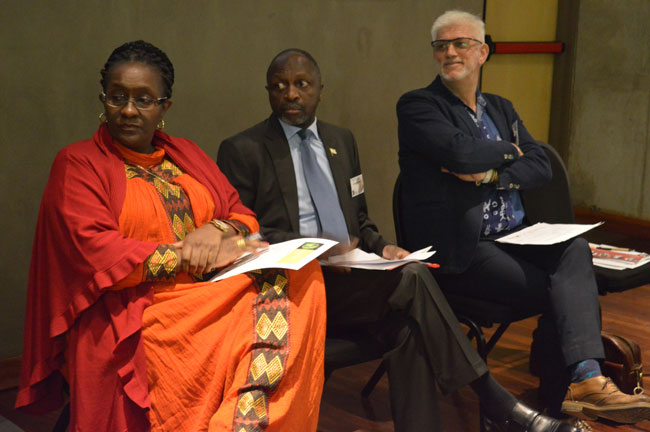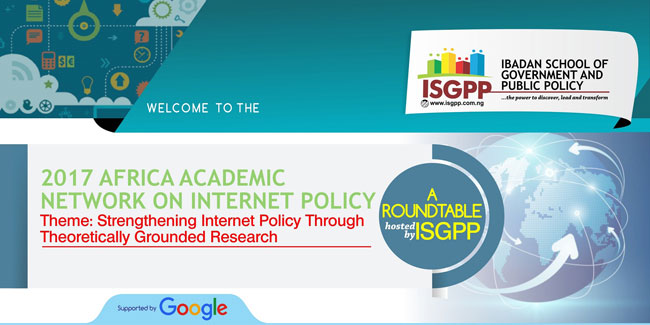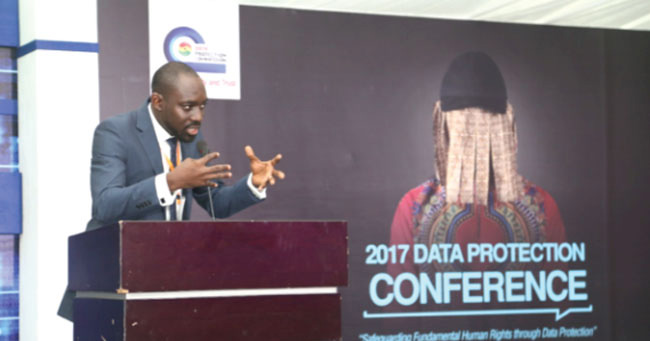- Details
The seventh African School on Internet Governance (AfriSIG 2019) took place on 3-9 September 2019. With a track record of producing unique cohorts of internet governance specialists for the continent and beyond, it sets itself apart by building synergies and interpersonal professional relationships that transcend beyond borders and limitations.
- Details
As the World Commemorated World Democracy Day on 15 September 2019, the Centre for Human Rights reflects on the wobbly democracy trajectory on the African continent and reiterate on the observation by the late Kofi Annan that: “no one is born a good citizen; no nation is born a democracy. Rather, both are processes that continue to evolve over a lifetime.”
- Details
On 2 and 3 September 2019, the Democracy, Transparency and Digital Rights (DTDR) Unit at the Centre for Human Rights, University of Pretoria, held a workshop on access to information and election preparedness in Botswana. The workshop was held ahead of the Botswana general elections scheduled for 23 October 2019. The workshop was organised in collaboration with the Electoral Commissions Forum of Southern African Development Community (ECF-SADC) and the Law Department of the University of Botswana. In attendance were a diverse group of stakeholders including representatives from the Independent Electoral Commission (IEC), the Attorney General Chambers, the Botswana Communications Authority (BOCRA), members of the media, representatives of political parties and civil society organisations (CSOs).
- Details
On 6 August, 2019, the Democracy, Transparency and Digital Rights Unit at the Centre for Human Rights, University of Pretoria, in collaboration with the Open Society Foundations - Africa Regional Office (OSF-AFRO) attended a seating at the Pan-African Parliament (PAP) Committee on Justice and Human Rights to appraise the parliamentarians of the Guidelines on Access to Information and Elections in Africa. Further, the Centre sought to discuss the possibility of developing a Model Law on Access to Information and Elections under the auspices of the PAP, based on those Guidelines that the African Commission on Human and Peoples’ Rights adopted in 2017.
- Details
On 30 and 31 July, the Democracy, Transparency and Digital Rights Unit and the Disability Rights Unit attended a workshop organised by the Westminster Foundation for Democracy (WFD) on advancing the inclusion and participation of persons with disability in Mozambique. The workshop was attended by officials from the Ministry of Gender, Children and Social Action (MGCSA) and Office of the Ombudsman; the Deputy President of the National Assembly. In attendence were also representatives from civil society organisations, most of them working on disability issues including the Centre for Human Rights (University of Pretoria) Light of the World, Associação dos Deficientes Moçambicanos (ADEMO), Forum das Organizações Moçambicanas de Deficientes (FAMOD), UNICEF, academia and the media.
- Details
On 11 and 12 July 2019, the Democracy, Transparency and Digital Rights Unit at the Centre for Human Rights, University of Pretoria, participated in the first regional consultation of the revision of the Declaration of Principles on Freedom of Expression in Africa. The regional consultation meeting, covering only Lusophone countries in Africa, was held in Maputo and was organised by the Mozambique chapter of the Media Institute of Southern Africa (MISA).
- Details
Join the Centre for Human Rights at RightsCon Tunis 2019 to discuss the feasibility of developing a digital rights model law for Africa. The conversation looks to focus on the challenges and the likely success of developing region-specific legislation on digital rights. It looks to work on having member states work towards rights-respecting legal policy solutions for new and emerging technologies in Africa from a regional perspective.
- Details
The Centre for Human Rights, University of Pretoria, is deeply concerned about the reported blocking of social media by the government of Eritrea to curb an impending demonstration ahead of the country’s Independence Day commemorations. Eritrea is due to celebrate its 26th Independence Day on 24 May 2019.
- Details
As the world commemorates World Press Freedom Day, it is sad to note that Africa is yet to fully enjoy press freedom as several developments curtail the enjoyment of press freedom provided under article 9 of the African Charter on Human and Peoples’ Rights (the Charter). The continued presence of defamation, secrecy, insult laws and the overly stringent regulation of the internet which impede freedom of speech are causes for concern.
- Details
The African Commission on Human and Peoples’ Rights’ Special Rapporteur on Freedom of Expression and Access to Information in Africa has launched the public consultation process of revising the 2002 Declaration of Principles on Freedom of Expression in Africa (the Declaration), during the African Commission’s 64th Ordinary Session in Sharm el-Sheikh, Egypt.
- Details
The Centre for Human Rights, University of Pretoria, participated in a conference on ensuring free and fair elections in Africa with a particular focus on the role of commissions, media and courts. The conference was organised by the South African Institute for Advanced Constitutional, Public, Human Rights and International Law (SAIFAC) in collaboration with the Department of Public Law, University of Johannesburg at the historic Women’s Gaol, Constitutional Hill on 11 April 2019. With the South African general elections scheduled for 8 May 2019, the conference provided an opportune platform for sharing experiences from other African jurisdictions including Zimbabwe and Kenya.
- Details
The Centre for Human Rights, University of Pretoria, participated in a consultative meeting with United Nations (UN) Special Rapporteur Clément Voule, in Nairobi, Kenya on 21 and 22 February 2019. The meeting was organised by the International Center for Not-for-Profit Law (ICNL), the Collaboration on International ICT Policy for East and Southern Africa (CIPESA) and the Kenyan Civil Society Reference Group. Civil society organisations from Benin, Burundi, Cameroon, the Democratic Republic of the Congo, Ethiopia, The Gambia, Ghana, Kenya, Malawi, Nigeria, Rwanda, Sierra Leone, South Africa, Tanzania, Togo, Uganda, Zambia and Zimbabwe participated in the meeting. They deliberated on the rights to freedom of association and assembly in the digital age, identified threats to civic space in the digital era and proposed strategies to counter those threats. The meeting was part of the interactive consultations that the UN Special Rapporteur has been undertaking with stakeholder to contribute to his report on protecting freedoms of association and assembly in the digital era.
- Details
On 21 March 2019, the Centre for Human Rights, University of Pretoria, participated in the Media and Elections Regional Meeting (Southern Africa) which was organised by the Media Alliance of Zimbabwe in Johannesburg. The meeting was aimed at sharing lessons and experiences of the media’s role during elections in Southern Africa, with a view to strengthening advocacy for media freedom, access to information and freedom of expression in the region. To gain a critical understanding of the recently adopted Southern Africa Development Community Parliamentary Forum (SADC PF) Model Law on Elections, the meeting was attended by representatives from the media and civil society organisations from Malawi, Swaziland, South Africa, Mozambique, Botswana, and Zimbabwe.
- Details
The Special Rapporteur on Freedom of Expression and Access to Information in Africa, Commissioner Lawrence Mute, undertook an advocacy visit to Nigeria from 24 to 27 September 2018 to raise awareness on article 9 of the African Charter on Human and Peoples’ Rights which establishes the right to freedom of expression and access to information. Specifically, the Special Rapporteur sought to evaluate the implementation of the Freedom of Information Act (FOIA) that Nigeria adopted in 2011. He met relevant stakeholders in the access to information sector to understand the circumstances and challenges around the implementation of Nigeria’s Freedom of Information Act. Subsequent to this visit, the Special Rapporteur prepared an Advisory Paper and compiled recommendations on how the government and other stakeholders in Nigeria can fully implement the freedom of information law.
- Details
On 28 and 29 March 2019, the Centre for Human Rights, University of Pretoria, participated in the third technical drafting meeting of revising the Declaration on Principles of Freedom of Expression and Access to Information in Africa (the Declaration). The meeting, held in Mombasa, Kenya, was organised under the auspices of the Special Rapporteur on Freedom of Expression and Access to Information in Africa (Special Rapporteur). The Special Rapporteur is undertaking the initiative to revise the Declaration which was adopted by the African Commission on Human and Peoples’ Rights (African Commission) in 2002 against the backdrop of the African Commission Resolution 362, Resolution 350 and Resolution 222. The resolutions gave the Special Rapporteur the mandate to revise the Declaration, include access to information and internet related issues as they apply to article 9 of the Charter.
- Details
The Centre for Human Rights, University of Pretoria (the Centre) is deeply concerned by the reported ongoing human rights violations in our immediate northern neighbour, taking the form of excessive use of force and restrictions on the free flow of information. We urge the South African government to offer itself as a facilitator to assist in seeking a solution in the interest of Zimbabwe’s people.
- Details
On 29 November 2018, The Centre for Human Rights, Media Institute for Southern Africa and Zimbabwe Lawyers for Human Rights organized a workshop in Harare, Zimbabwe, aimed at reflecting on Zimbabwe’s 2018 elections. This was in the context of access to information , freedom of expression and digital rights against the backdrop of the normative standards adopted by the African Commission on Human and Peoples’ Rights such as the Model Law on Access to Information in Africa and the Guidelines on Access to Information and Elections in Africa. The workshop was attended by representatives from the media, media organisations, political parties, election monitors and civil society organisations including women, youth and disability organisations.
- Details
The Centre for Human Rights (the Centre) organised a panel discussion on access to information and elections in Africa during the African Commission on Human and Peoples’ Rights’ (African Commission) 63rd Ordinary Session in Banjul, The Gambia. The panel discussion was held on 28 October 2018, and was moderated by the Special Rapporteur on Freedom of Expression and Access to Information in Africa, Commissioner Lawrence Mute. The panel consisted of Maxwell Kadiri, of the Open Society Justice Initiative; Raouf Salami, of the ECOWAS Network of Electoral Commissions (ECONEC) and Joana Cortes, a senior official of the Gender Ministry of Angola. The discussion was aimed at popularizing and facilitating dialogue on the Guidelines on Access to Information and Elections in Africa (the Guidelines), which the African Commission adopted during the 61st Ordinary Session in November 2017.
- Details
On 11 and 12 October 2018, the Centre for Human Rights, University of Pretoria in collaboration with the Special Rapporteur on Freedom of Expression and Access to Information in Africa (Special Rapporteur), Commissioner Lawrence Mute, organised a technical draft meeting of experts on the Revision of the Declaration of Principles on Freedom of Expression in Africa, in Mombasa, Kenya.
- Details
Due to the central role of access to information in promoting a healthy and well-functioning multi-party democracy, the African Commission’s Special Rapporteur on Freedom of Expression and Access to Information in Africa, Commissioner Lawrence Mute, undertook an advocacy visit to Nigeria from 24 to 27 September 2018 to raise awareness on article 9 of the African Charter on Human and Peoples’ Rights which establishes the right to freedom of expression and access to information.
- Details
In a landmark acknowledgement of the importance of the normative elaboration of the obligation of Member States with respect to the right of access to information in electoral processes, the African Commission on Human and Peoples’ Rights (African Commission) adopted the Guidelines on Access to Information and Elections for Africa (the Guidelines) on 10 November 2017, during its 61st Ordinary Session, in Banjul, The Gambia. To celebrate this milestone, the Guidelines were officially launched during the recently concluded 62nd Ordinary Session of the African Commission, which took place from 25 April to 9 May 2018 in Nouakchott, Mauritania, in a session presided over by the Special Rapporteur on Freedom of Expression and Access to Information in Africa (Special Rapporteur), Commissioner Lawrence Mute.
- Details
The Centre for Human Rights, Faculty of Law, University of Pretoria, cordially invites you to a panel discussion on technology and democracy.![]() Download this invitation
Download this invitation
- Details
The Centre for Human Rights, Faculty of Law, University of Pretoria and UNESCO developed a massive open online course (MOOC) on the International and African Legal Framework on Freedom of Expression, Access to Information and the Safety of Journalists. The MOOC, which runs from 13 November to 18 December 2017, is hosted on the Canvas Network platform. Enrollment is free of charge and after the successful completion of all the modules, participants will receive a certificate.
- Details
The Centre for Human Rights in collaboration with the United Nations Educational Scientific and Cultural Organisation (UNESCO) held a three-day judicial training for judges from across Africa. The training which focused on freedom of expression, access to information and the safety of journalists took place from 23 to 25 October.
In attendance were senior judges from Cameroon, Ethiopia, the Gambia, Ghana, Guinea, Nigeria, Mauritania, Mozambique, South Africa, South Sudan, Tanzania, Uganda and Zambia. There was also a judge from the Economic Community of West African States (ECOWAS) Community of Court of Justice.
- Details
The University of Pretoria is currently in the unique position where three law professors from the faculty of law serve as international experts on key UN bodies in Geneva, responsible for the development and application of international law.
According to the dean of the faculty of law, Professor Andre Boraine, such a concentration of international experts in one university is exceptional by any standard.
“Some – not even all – countries count themselves lucky if they have one person in these key UN positions: here we have three experts not only from one country but also from one university,” he said.
- Details
The Centre for Human Rights held a capacity building workshop for members of the Pan African Parliament (PAP) on 5 August 2017. The workshop, which was held at the seat of PAP in Midrand, South Africa, was themed ‘Digital Rights, Democracy and Governance in Africa: The Role of National and Regional Parliaments. The Centre for Human Rights facilitated this workshop in collaboration with its partners- Applied Law and Technology (ALT) Africa, Association for Progressive Communications (APC) and Google.
- Details
On 14 and 15 June 2017, the Centre for Human Rights, University of Pretoria and the School of Law of the University of Nairobi, in collaboration with the Special Rapporteur on Freedom of Expression and Access to Information in Africa (Special Rapporteur), Commissioner Pansy Tlakula, organised a consultation on the draft ‘Guidelines on Access to Information and Elections for Africa’ (Draft Guidelines).
The purpose of the consultation was to elicit comments on the Draft Guidelines from various stakeholders with a view to strengthening its content. The event was attended by a broad range of stakeholders including Election Management Bodies, political parties, National Human Rights Institutions, media, academics and civil society organisations.
- Details
The Centre for Human Rights, Faculty of Law, University of Pretoria cordially invites you to a lecture titled: "The promise and peril of human rights technology"
- Details
The African Commission on Human and Peoples’ Rights (African Commission) has made a public call for comments on the draft ‘Guidelines on Access to Information and Elections in Africa’ (draft guidelines). Comments must be sent to the secretariat of the African Commission via email (au-banjul@africa-union.org | africancommission@yahoo.com | hezae@africa-union.org) no later than 30 June 2017.
Download draft guidelines in English
Download draft guidelines in French
- Details
The Centre for Human Rights celebrated Africa Day 2017 with the theme “The Africa we want: Rights, freedoms and governance in digital Africa”.This event was hosted in conjunction with Google. It was held at the historic Liliesleaf Farm, Rivonia, and attended by over eighty guests.The Embassy of the Netherlands, the Embassy of Ireland, HiVOS South Africa and the Centre for Human Rights partnered to organize a Rainbow Happy Hour and a round table discussion on that day.
- Details
From 2 to 5 May, the Freedom of Expression and Access to Information (FOE & ATI ) Unit participated in the inaugural meeting of the Africa Academic Network of Internet Policy and Governance which took place in Ibadan, Nigeria. The roundtable which was organised by the Ibadan School of Government and Public Policy (ISGPP), with the support of Google, brought together academics of African descent both from within Africa and the diaspora, to identify and interrogate core issues on internet policy and governance.
- Details
The Freedom of Expression and Access to Information Unit participated in the Ghana Data Protection Conference which took place from 20 to 21 April 2017 in Accra, Ghana.
In line with the theme of the conference of ‘Safeguarding Fundamental Human Rights through Data Protection’, the Unit presented findings of its on-going research on the adoption of a human rights based approach to data protection in Africa.

